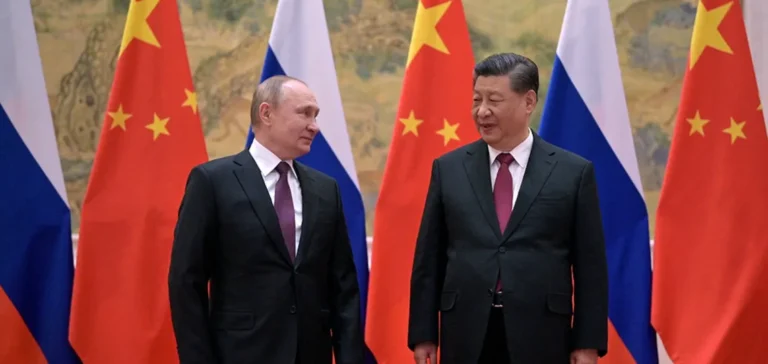For several decades, Iran has maintained economic and strategic relations with Russia and China, primarily centered around oil transactions and occasional military cooperation. However, the nature of these relationships, heavily focused on sanctioned oil exchanges, currently limits the practical scope of these partnerships. Indeed, although Moscow and Beijing economically benefit from purchasing discounted Iranian oil, neither country is willing to jeopardize its other Middle Eastern relationships by actively defending Iran. This dynamic is particularly evident in the context of recent regional tensions involving Tehran.
Russia’s cautious stance towards Iran
Russia, engaged on multiple international fronts, notably in Eastern Europe, demonstrates marked caution towards Iran. According to Maria Snegovaya from the Center for Strategic and International Studies (CSIS), Russia avoids direct involvement in conflicts involving Iran to preserve its good relations with other states in the region, particularly Saudi Arabia and Israel. This strategic restraint is also motivated by economic interests linked to potential increases in oil prices resulting from regional escalation, allowing Moscow to offset losses due to Western sanctions. Russia, heavily dependent on oil revenues to balance its budget, thus navigates carefully through crises affecting Iran.
China: Balancing economic opportunities and strategic restraint
China maintains a similar stance, though its motivations differ slightly. Brian Hart, also an analyst at CSIS, notes that Beijing, while remaining a major trading partner with Iran, does not necessarily oppose moderate weakening of Tehran. Such a scenario could allow China to negotiate better prices for oil imports, a crucial component of its energy strategy. Nonetheless, economically, Iran remains secondary to China compared to Gulf countries, notably Saudi Arabia, with which trade volumes are significantly larger. This situation therefore limits China’s incentives to become more actively involved in regional crises to support Tehran.
North Korea emerges as potential actor in the Iranian equation
Another unpredictable actor that could disrupt this fragile regional balance is North Korea. Victor Cha, head of geopolitical affairs at CSIS, indicates that North Korea could play a significant role in rebuilding Iran’s nuclear program, leveraging its recent rapprochement with Moscow. According to Cha, Russia does not seem actively opposed to such potential collaboration, thereby allowing Pyongyang to act freely. This dynamic could introduce a new variable into the region, further complicating geopolitical and economic balances surrounding Iran.
These various factors highlight the real limitations of Iran’s strategic partnerships, constrained by the divergent economic and geopolitical interests of Moscow, Beijing, and now Pyongyang. A situation that raises questions about the sustainability and effectiveness of these alliances for Tehran in the face of future regional challenges.






















